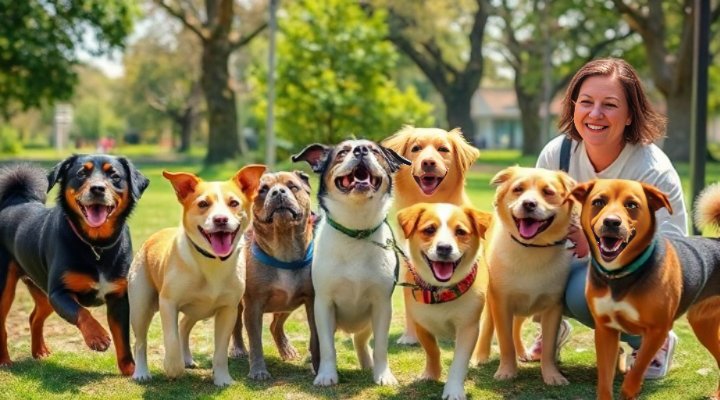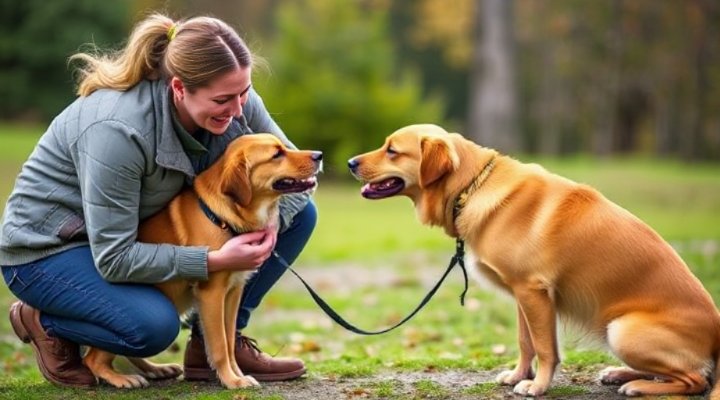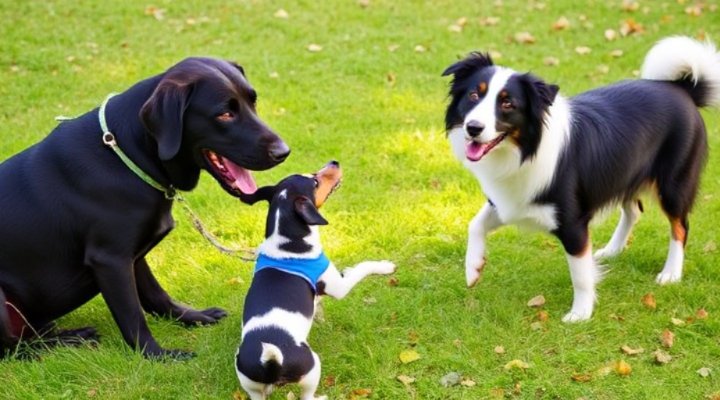Dog socialisation classes are more than just playdates for your furry friend. They’re structured environments where dogs learn crucial life skills that help them navigate the world confidently. Whether you have a bouncy puppy or a reserved adult dog, these classes can work wonders for their behavior and emotional well-being.

The Science Behind Dog Socialisation Classes
Research shows that properly socialised dogs are less likely to develop behavioral issues like aggression or excessive fear. According to the American Veterinary Society of Animal Behavior, the prime socialisation window for puppies is between 3-14 weeks, but older dogs can absolutely benefit from structured socialisation too.
In dog socialisation classes, trained professionals create controlled environments where dogs can:
- Learn appropriate play behaviors
- Develop confidence around new experiences
- Practice impulse control
- Build positive associations with other dogs and people

Benefits You Might Not Expect
While most owners sign up for dog socialisation classes to help their pets get along with others, the benefits extend far beyond that. For instance, well-socialised dogs:
1. Adapt better to vet visits: They’re less stressed during examinations.
2. Handle grooming more calmly: No more wrestling matches during nail trims!
3. Travel more comfortably: Whether it’s a car ride or a stay at a dog boarding facility, socialised dogs adjust easier.
I remember when I first took my rescue dog, Max, to socialisation classes. Within weeks, his tail stopped tucking between his legs every time we passed another dog on our daily walks. The transformation was remarkable!

What Makes a Good Socialisation Class?
Not all dog socialisation classes are created equal. Look for these hallmarks of quality:
Small class sizes: Ideally no more than 6-8 dogs with multiple trainers.
Structured introductions: Dogs should be matched by size and temperament.
Positive reinforcement: Punishment-based methods have no place in proper socialisation.
Clean, safe environment: With enough space for dogs to interact comfortably.
The Association of Professional Dog Trainers offers great resources for finding certified trainers in your area.

Socialisation Beyond Puppyhood
While early socialisation is ideal, it’s never too late to help your dog develop better social skills. Many trainers offer specialized classes for:
– Adolescent dogs going through their “teenage” phase
– Shy or fearful dogs needing confidence building
– Adult dogs with limited early socialisation
– Seniors adjusting to new life stages
Remember my friend’s 5-year-old terrier who’d never been around other dogs? After a 6-week group class, she went from lunging at every passing dog to politely ignoring them – proof that old dogs can learn new social tricks!
Making the Most of Socialisation Classes
To maximize your dog’s progress:
1. Be consistent: Attend all sessions and practice at home.
2. Watch for stress signals: Yawning, lip licking, or avoiding interaction mean your dog needs a break.
3. Celebrate small wins: Even brief positive interactions are progress.
4. Pair classes with real-world practice: Visit pet-friendly stores or cafes to generalize skills.
For dogs needing extra help, consider pairing socialisation classes with behavioral therapy.
Related Keywords
dog training classes | puppy socialization tips | dog behavior modification | canine social skills | professional dog training

